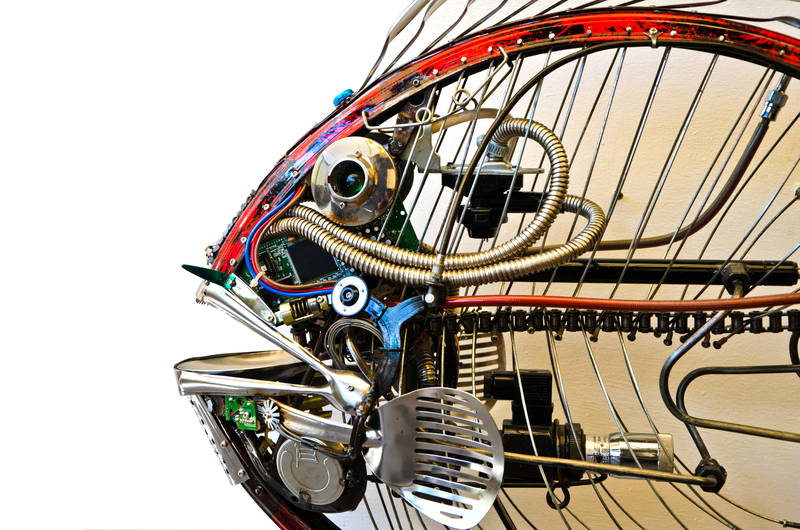Environmental Impacts of Modern Waste Disposal Methods
Posted on 17/09/2024
As the world's population continues to grow, so does our production of waste. In fact, studies show that we generate a whopping 2.12 billion tons of waste every year - and this number is only expected to increase. With this amount of waste, it's essential that we have effective waste disposal methods in place to protect our environment.
However, what many people may not realize is that the way we dispose of our waste can have significant impacts on our environment. In recent years, there has been a shift towards more modern waste disposal methods, but with these changes come both advantages and disadvantages. In this article, we will explore the environmental impacts of modern waste disposal methods and discuss their pros and cons.
The Rise of Modern Waste Disposal Methods
Traditional waste disposal methods, such as landfilling and incineration, have been used for decades. However, as concerns about environmental pollution and resource depletion continue to grow, new technologies and techniques for waste management have emerged.
One such method is recycling, which involves converting waste materials into new products. It helps reduce the amount of waste sent to landfills and conserves resources by reusing materials. Another modern approach is composting, where organic waste is broken down into nutrient-rich soil amendments instead of being disposed in landfills. Advanced thermal treatment technologies, such as pyrolysis and gasification, are also becoming more popular as they can turn non-recyclable waste into energy sources.

The Positive Impacts of Modern Waste Disposal Methods
One of the most significant advantages of modern waste disposal methods is their potential to reduce environmental pollution. Landfilling generates methane gas, a potent greenhouse gas that contributes to climate change. Incineration releases harmful pollutants into the atmosphere if not adequately controlled. On the other hand, recycling reduces demand for raw materials thereby conserving natural resources and reducing air and water pollution associated with extraction and processing. Composting helps return nutrients to the soil, promoting healthier plant growth and reducing the need for chemical fertilizers.
Moreover, modern waste disposal methods also provide economic benefits. Recycling generates jobs in the collection, sorting, and processing of materials. It also reduces the cost of waste management by diverting materials from landfills, saving on disposal fees. Additionally, thermal treatment technologies produce energy that can be used to power homes and businesses, reducing reliance on fossil fuels.
The Negative Impacts of Modern Waste Disposal Methods
While there are many advantages to modern waste disposal methods, they also have their drawbacks. One of the main concerns with recycling is that it requires significant amounts of energy and resources to collect, sort, and process materials. This can result in higher carbon emissions and environmental impact than traditional landfilling.
Composting can also have negative effects if not managed correctly. Improperly composted organic waste can produce methane gas, causing air pollution and contributing to climate change. Advanced thermal treatment technologies require complex infrastructure and high capital costs, making them less accessible for smaller communities or developing countries.

Tips for Sustainable Waste Disposal
To minimize the negative impacts of modern waste disposal methods, here are some tips for sustainable waste management:
- Reduce your waste generation by practicing mindful consumption habits.
- Reuse items whenever possible instead of throwing them away.
- Recycle materials that are accepted in your local recycling program.
- Properly dispose of hazardous or toxic waste at designated facilities.
- Support composting initiatives in your community.
- Educate yourself and others about proper waste disposal methods.

Takeaways
Modern waste disposal methods have both positive and negative impacts on the environment. Recycling, composting, and advanced thermal treatment technologies offer opportunities for reducing pollution and conserving resources. However, they also have drawbacks such as requiring large amounts of energy and resources, complex infrastructure, and higher costs.
The key takeaway is that we must continue to strive towards sustainable waste management practices. This includes reducing our waste generation, maximizing recycling efforts, and investing in innovation for more efficient and environmentally friendly waste disposal methods.
In Conclusion
In conclusion, modern waste disposal methods have the potential to significantly reduce environmental impacts when implemented correctly. However, they also come with challenges that need to be addressed to ensure their effectiveness. By practicing sustainable waste management techniques and supporting advancements in waste disposal technologies, we can work towards a cleaner and healthier environment for generations to come. Let us all do our part in reducing waste and protecting our planet.
Latest Posts
Your Blueprint for Tufnell Park Real Estate Investment
Considering Tufnell Park? Here's Local Advice
Get Off the Beaten Path in Tufnell Park, London





